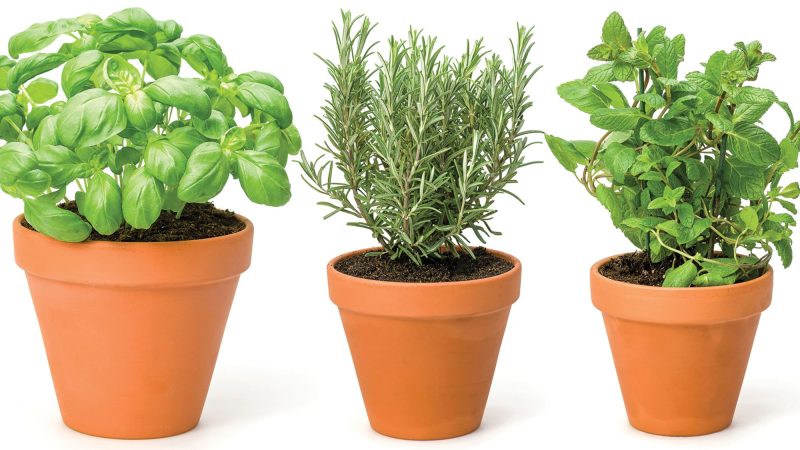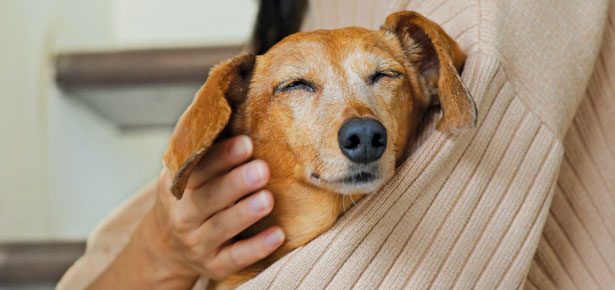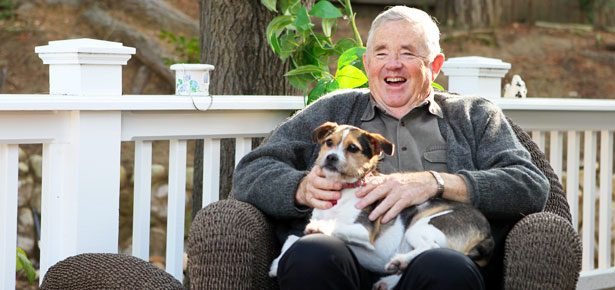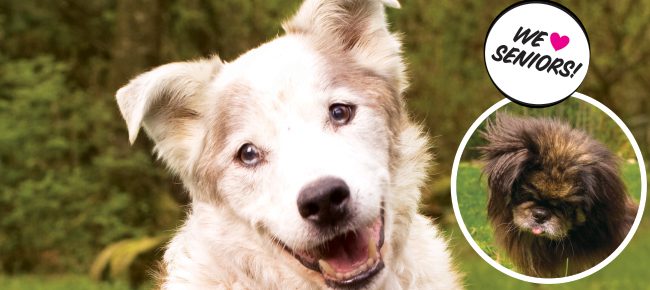
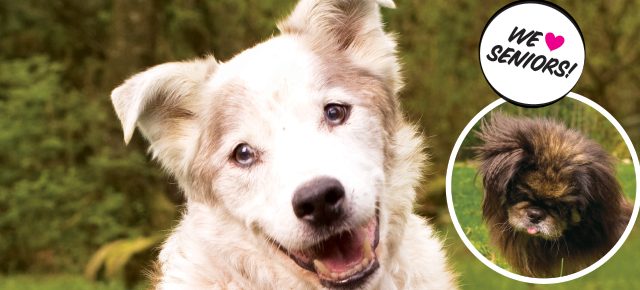
4 Things You Should Be Doing For Your Senior Dog
Tips to help keep your senior dog spry
1) Help Your Dog Get Enough Exercise. Just because our golden oldies are content to spend most of their time curled up on the couch doesn’t mean we can shirk our responsibilities where their (at least) twice daily ramble is concerned. It’s paramount to our aging dogs’ physical and mental health that they get out there everyday—albeit it at perhaps a slower pace—to move those bones and experience a change of environment to stimulate their senses. We too could spend all day lying around but it certainly wouldn’t be good for us!
2) Keep Them Slim. Don’t allow your dog to pack on the pounds as she becomes less active. Extra weight is incredibly detrimental to our dogs’ health, putting extra strain on joints and organs. Obesity is linked to all manner of canine disease, cancer among them. Make sure your senior is eating the best food you can afford, in a scaled back serving size that reflects his current level of activity. And as treats are one of our dogs’ chief pleasures, save some room for those—just make sure they’re low calorie and small (dogs would rather have ten teensy treats than one large one they scarf down in a millisecond).
3) Help Your Senior Get Around. Lots of older dogs can get a bit wobbly. If you have hardwood floors, seriously consider a runner carpet for added traction. It makes a big difference. Pet steps to get up to a favourite spot on the couch are also a great idea. If your dog has a weak backend, a mobility aid like the GingerLead can be beyond helpful. Inspired by their dog Ginger, the folks at GingerLead created a dog support and rehabilitation harness ideal for aging or disabled dogs needing some assistance with their balance or mobility. Its soft, padded belly sling with a leash and handle lets you help dogs with weak hind legs walk (from $36, gingerlead.com).
4) Don’t Neglect Those (not so) Pearly Whites. Unchecked tartar build up can cause gingivitis, which can cause bacteria to circulate through your dog’s blood stream and harm her internal organs. Bad teeth and inflamed gums are no joking matter; good dental health is so important for overall wellness. This means it’s essential to keep up with the daily tooth brushing—we know, it’s no one’s favourite thing, but maintaining good dental hygiene is very important to the health of your older dog. Also: If your senior is suddenly turning up her nose at her dinner, don’t immediately chalk it up to a reduced appetite—it could be joint or tooth pain! Talk to your vet to get to the bottom of it.
Join the newsletter and never miss out on dog content again!
"*" indicates required fields
By clicking the arrow, you agree to our web Terms of Use and Privacy & Cookie Policy. Easy unsubscribe links are provided in every email.
